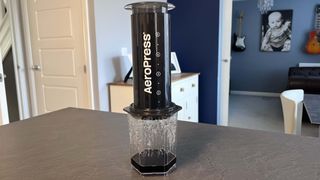
Best Keurig coffee maker 2024: top-rated machines to make your morning coffee
Buying Guide Our picks of the best Keurig coffee makers to help you find the perfect coffee maker for your home or office space





News The Dyson 360 Vis Nav uses 360 vision to intelligently deep clean your home, picking up more debris than others claim.

Hands-On We tried out Weber's smaller Traveler gas grill to see how it compared to the original model.

News There are three global first-time launches among the wave of new products from SharkNinja.

News The new Ninja Double Stack Air Fryer is one of the latest kitchen countertop innovations to be announced.

Buying Guide Our picks of the best Keurig coffee makers to help you find the perfect coffee maker for your home or office space

Buying Guide Eliminate the heat in your home with the best thru wall air conditioners from Whirlpool, LG, and more.

BUYING GUIDE These are the best front load washers you can buy in every category, from smart machines to models with steam settings and child locks.

Buying guide Discover the advantages of the best over-the-range microwaves, including space-saving design, powerful extraction, and smart features.

Buying Guide The best Nespresso machine you can buy in every category, from compact Original machines to models with an integrated milk frother and auto pod recognition.

Buying Guide We've divided our top picks of the best cordless vacuums on the market into easy-to-shop categories, such as best budget and overall best cordless vacuum.

Buying Guide The best microwaves are perfect for saving energy, cooking conveniently, and maintaining food nutrients.

Deals Find the best washing machine deals with our guide, as well as info about features, prices, and tips for installation and maintenance.

Deals Shop the best washer dryer combo deals with our roundup of discounted appliances.

Deals If you want to snag the best deal on a new vacuum, you should know where to look.

Deal The Shark AI Ultra Self-Empty Robot Vacuum has just dropped to its lowest ever price with a half-price saving.

Deal Upgrade your outdoor cooking with the Ninja Woodfire Pro, which offers grilling, smoking, and air-frying functions.

Review We test and review the AeroPress XL's design, features, performance, price, and how easy it is to clean.

How To We lay out your key decision factors when choosing a pruning shear, from type and size to design features.